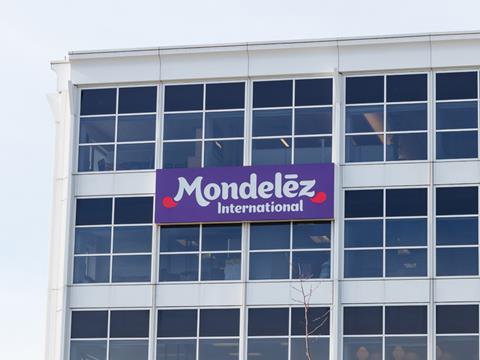
Global food and beverage giant Mondelēz International has announced an increased commitment to reducing its use of virgin plastics in its packaging.
By 2025, the company is aiming for a 25% reduction in virgin plastic use in its rigid plastic packaging, or a 5% reduction in virgin plastic use in its overall plastic packaging portfolio, assuming a constant portfolio mix.
The company says that it will reach these targets through a combination of measures including elimination of plastic material, increased use of recycled content, and the adoption of reuse models for the company’s portfolio where it makes sense to do so.
“Our support for a more sustainable future for plastics is clear,” said Dirk Van de Put, chairman and CEO at Mondelēz International. “We’re already one of the most efficient users of plastic packaging in the consumer goods space and we’ve made significant strides to reduce plastic packaging use, substitute plastics for other materials, and design for recyclability.”
These commitments build on the company’s existing 2025 goals to use 5% recycled content by weight across its plastic packaging and to design all packaging for recyclability, a goal Mondelēz says it is on track to achieve with 94% of packaging reportedly already designed to be recycled.
The company says that it currently invests over $30 million a year in technology, resources, and recycling infrastructure and anticipates an acceleration in this investment over time. In total, between 2019 and 2025, Mondelēz International anticipates spending approximately $300 million on projects related to sustainability in plastics.
It is the view of the company that recycling infrastructure improvements, such as those proposed under Extended Producer Responsibility (EPR) schemes, are needed globally, particularly for flexible films.
Commenting on this, Christine Montenegro McGrath, vice president and chief of impact, says: “Increasing recyclability of materials is a great start, but we need actual recycling rates of various materials to increase.
“Compared to rigid plastics like PET, flexible plastic films, like the flow wraps we use on our snacks, are still difficult to collect, sort and reprocess economically, because the infrastructure doesn’t exist yet for this to be done at scale. We are committed to playing our part to improve this, including partnering with stakeholders across sectors to drive action to combat plastics pollution.”
Mondelēz International is an active participant in the Consumer Goods Forum Plastic Coalition of Action; the Business Call for a Global UN Treaty on Plastics Pollution; the U.S. Plastics Pact; the Ellen MacArthur Foundation’s New Plastics Economy Global Commitment; the New Plastics Economy Initiative; the European CEFLEX initiative; the UK Plastics Pact and the UK Flexible Plastic Fund (formerly known as EPPIC); and the Australia/New Zealand Plastics Pact, among others.
Mondelēz International reports on the progress it is making against its environment, social sustainability and governance commitments, strategies, and goals in the Snacking Made Right Report, which is published annually in early May.













